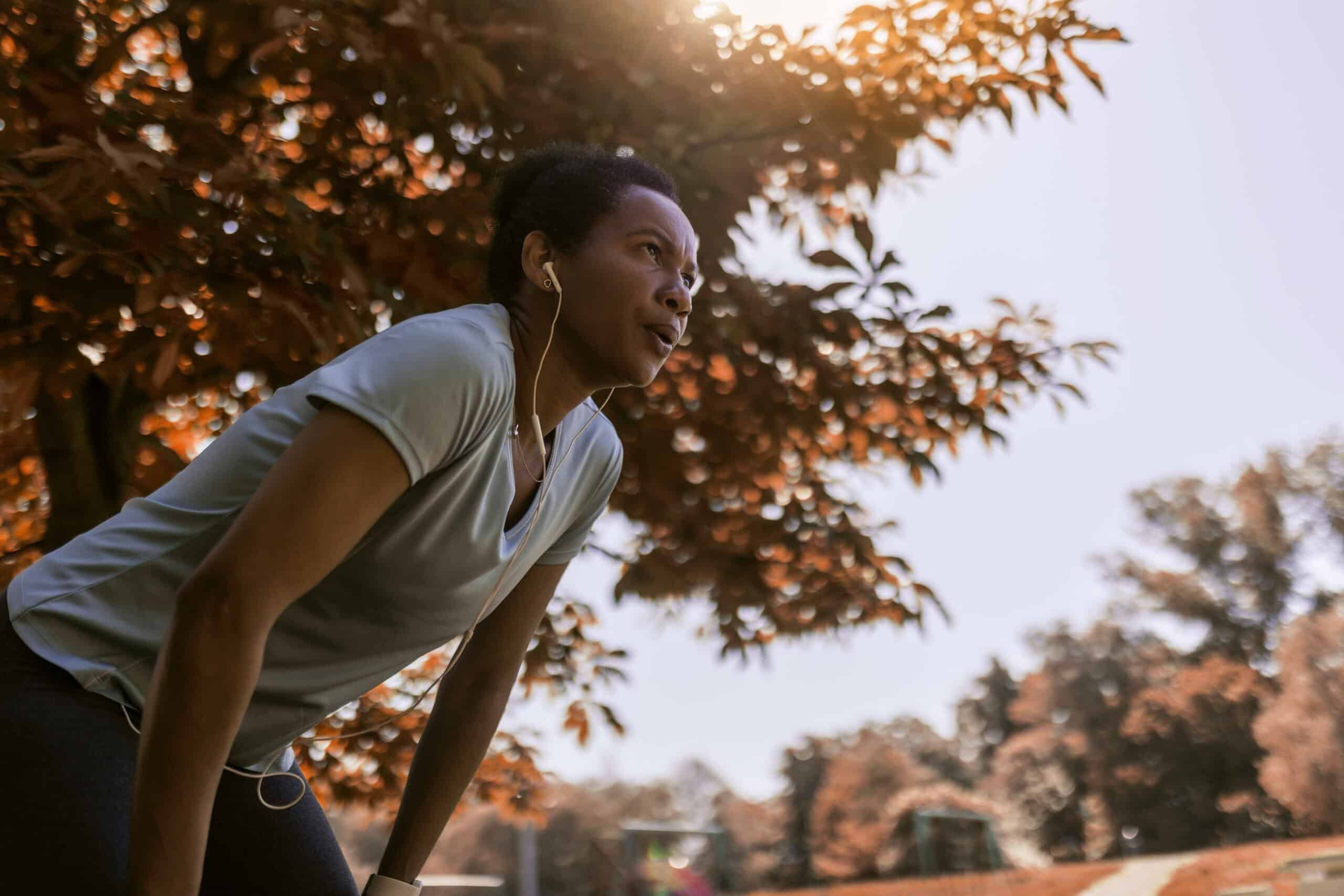Sports Medicine
Want to learn more about this at Kettering Health?
At a Glance
Q: What should you do after finishing a race to recover safely?
A: Keep moving, stretch, and rehydrate to prevent soreness and speed recovery. Gradually return to running after low-impact activities.
- Post-race snacks help restore nutrients.
- Swimming or biking are great low-impact options.
- Learn warning signs of sharp pain vs. normal soreness.
Your big moment is here. Maybe you finished a “couch to 5K” program and finally crossed the finish line, heart pumping, the crowd cheering. But what happens now?
Whether you want to start training for your next 5K or never want to run again, there’s a way to avoid injury or delay in recovery. Aaron Cingle, a physical therapist, shares the best practices to follow after you cross the finish line.
After the race
When you finish a race, the first thing you feel like doing is sitting down. But, according to Cingle, keeping your body in motion is your first step toward recovering.
“Try and keep moving a little bit, whether that’s just walking or standing,” he says. “Don’t just sit down or lay down and not move.”
- Remember to stretch. Stretching your legs—and your arms—can prevent muscle soreness and injury while improving mobility and flexibility.
- Rehydrate and refuel. “Water, even milk,” Cingle says, “is really good, especially after longer runs.”
Cingle also suggests taking advantage of the snacks most races offer at the finish line or bringing your own. Fruits like oranges, bananas, and apples can provide the nutrients you need to start your recovery.
Later in the day, eat a meal full of protein and carbohydrates to replenish the nutrients your body lost during the race and to begin muscle repair.
Take your time
In the days following the race, Cingle says to keep moving and stretching.
Give yourself time to ease back into running. Try activities that put less stress on your body, like swimming, biking, walking, or using the elliptical to stay active until you are ready to run again. Any kind of activity is better than no activity.
Take recovery at a pace your body can handle. Cingle says to keep in mind the length of the race you’re recovering from. Longer races may lead to a longer recovery.
When to get help
Muscle soreness and fatigue are normal during recovery. But how do you know when something is wrong?
Cingle says to pay attention to the type of pain, “Any kind of sharp pain, that’s a warning sign. Normal muscle soreness, fatigue, maybe your times are a little bit slower—that’s all normal.”
To help with normal muscle soreness, try an ice bath to reduce inflammation and to help your muscles recover. Getting a massage can also help work out and relax muscle tension.
But sudden bouts of fatigue or pain can also mean something is wrong. Speak with a Sports Medicine physician to get to the root of the problem and avoid further injury or delay in recovery.
Don’t be discouraged if your recovery takes longer or is harder than someone else’s. Just remember that everyone is different.









